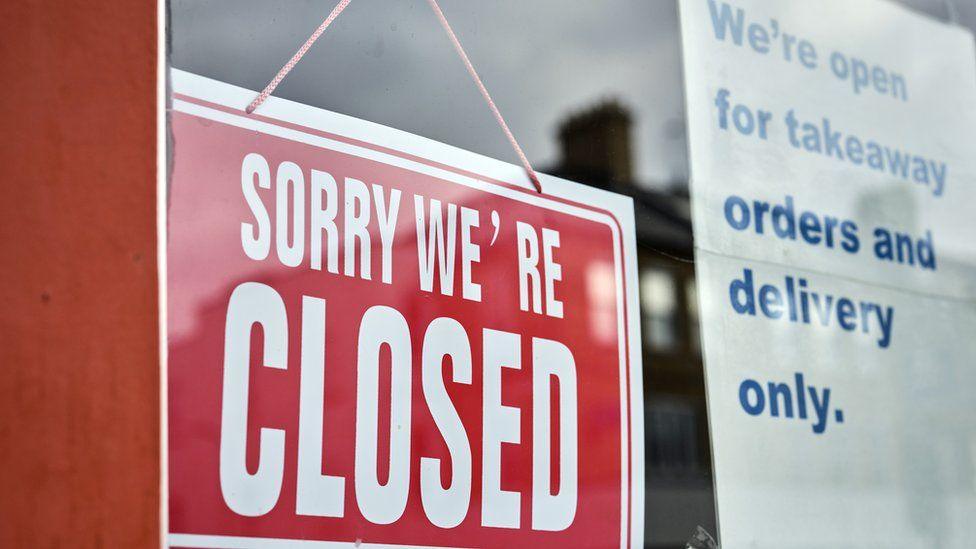Covid-19: Number on furlough drops below 100,000 in NI
- Published

The number of people on furlough in Northern Ireland fell to 99,400 by 31 March 2021, according to the Treasury.
This is down from 108,600 at the end of February. The provisional figures indicate that more women are furloughed than men.
The Coronavirus Job Retention Scheme (CJRS) runs until September.
The scheme pays up to 80% of an employee's salary, up to a maximum of 拢2,500 a month.
The Treasury said the figures show that levels of furlough decreased more significantly across the UK in March 2021.
In Northern Ireland, 51,500 women remained on furlough.
Newry, Mourne and Down and Causeway Coast and Glens had the highest take-up rates of the scheme at 15%.
In Northern Ireland and the West Midlands, the wholesale and retail sector had the highest number of employees on furlough at 28 February, followed by accommodation and food services.
Provisional estimates show this remained the case for Northern Ireland as of 31 March.
Non-essential retail in Northern Ireland reopened on 30 April, so any change within this sector should be reflected in the next set of official figures.
Manufacturing concerns
Ulster Bank economist Richard Ramsey said the second quarter should see a rapid descent in the number of employees furloughed.
Only 450 manufacturing jobs came off furlough in March
However, he added: "Only 450 manufacturing jobs came off furlough in March relative to the previous month.
"That means a sizeable 9,560 jobs within manufacturing, or one in nine of all jobs, are currently out of action.
"The concern is that a significant number of these jobs may be lost when the furlough scheme expires. That worry is not just confined to manufacturing but to other sectors too.
"The lifting of lockdown restrictions removes just one barrier to a return to employment.
"For many of these furloughed jobs, however, the even bigger hurdle is will the businesses employing them still be viable?"
Related topics
- Published19 March 2021
- Published25 February 2021
- Published29 July 2021